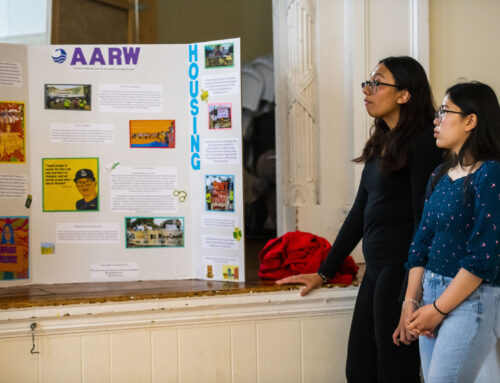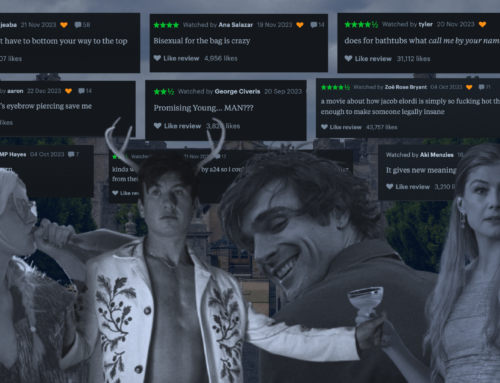Twitter isn’t always the likely place to find source material for Hollywood’s summer blockbusters, but when A’Ziah “Zola” Wells King tweeted in 2015 about a road trip she took with a new friend, all eyes were glued to the thread. Rolling Stone said it read like “Spring Breakers meets Pulp Fiction, as told by Nicki Minaj,” and that’s when the idea to produce a film based on King’s tweets was born.
What was supposed to be a fun beach trip, where Zola and her new friend Jessica (who is named Stefani in the film adaption) planned on dancing at strip clubs to make good money, turned into a humiliating sex trafficking incident. The girls find themselves held at gunpoint, fighting to make it back home to Detroit safely. The night is not at all what Zola signed up for. Jessica apologizes, but King asserts her frustration: “‘I’m not gone beat yo ass right now because u already in bad shape. But I better not ever see or hear from you again.’”
It’s a tale of fast friendship and wild suspense, and the viral Twitter thread is summarized here (make your elementary school teachers proud and read it before you see the film). No wonder A24 picked up the project in 2016, which was led by James Franco at the time.
Zola deals with the themes of sexualizing and dehumanizing the female body, making a female director the only person right for the job—accompanied by her trusted creative partner, which is the route director and screenwriter Janicza Bravo took with the film. Jeremy O. Harris wrote the screenplay with Bravo while he was still at Yale receiving his MFA, and Bravo cites him as the perfect creative partner for the project since he is “deeply on Twitter.” The duo wanted to tell the story with as much grace as possible because at the end of the day it’s a story about a young girl who finds herself in troubled waters far from home—it’s a Wizard of Oz tale with very high stakes.
To Bravo, King’s story is not a wild stripper road trip that was shared online. It concerns “a 19-year-old whose life is threatened, who is being told, not asked, that she has to physically sell her body to make it home. That’s fucked.” Since so many people already know the whole story, the stakes are higher for critique. On top of those expectations, frenzy followed the project when Bravo replaced Franco as its director. Harris told Bravo, “It is already hard enough to be a Black woman making movies in this environment, I don’t want you to be taking more bullets than you need to.”

When Bravo replaced Franco, the public assumed it was the sexual harassment allegations against Franco that pushed Bravo into the director’s seat. “The better story to tell was that he was accused and then a cleanup crew comes in. Like, ‘You know how we fix it? We throw in a director. And, you know, if she’s Black? Points,’” she told The Hollywood Reporter. But Bravo was hired before the Franco story debuted in the Los Angeles Times in January 2018. She’s made it known that she’s there to direct a film, not clean up A24’s act. “I actively worked to get this. So I don’t love any perception that it was handed to me to fix the problem,” she said.
Despite having an impressive resume, Bravo had to prove to A24 that she was the right director for the job because she wanted to direct King’s story more than anything. Before the filming process began, she had already directed the film herself. “She had a Dropbox folder for every gesture she thought each character would make, lighting references, costume references, interior references. It was like the film was complete,” Harris told Cultured.
Black creatorship is usually questioned in Hollywood, and unfortunately many other industries as well. The stakes were not only high for Bravo but for King as well. When her story went viral in 2015, people speculated whether or not it actually happened; Bravo made sure to give King the respect her story deserved while placing it in the hands of a major production studio. “I’d read a handful of articles in 2015, and every article questioned the validity of her story rather than speaking to what happened, the horror of what happened,” she said to Cultured. “So for me, the Twitter thread was gospel. That is what it is. I’m going to tell the story as she put it.”
The Internet Age welcomes everyone to be a storyteller—there are more chances of being heard online than on a street corner nowadays. When King tweeted her story six years ago, thousands of Twitter users patiently waited for her tweets to roll in; many of them remember watching it unfold in real time, citing the moment as “an actual piece of US history.” Bravo promises the same suspense and notes that the film version follows King’s thread exactly as she reported it. Zola is A24’s first post-pandemic release, but there is more riding on it than just the film’s performance at the box office. It’s the moment that has had Bravo on the edge of her seat since she shot the film three years ago—and all of King’s loyal Twitter followers can’t wait to see how it all unfolds on the big screen.
‘Zola’ stars Taylour Paige, Riley Keough, Nicholas Braun, and Colman Doming. In Theaters June 30.




